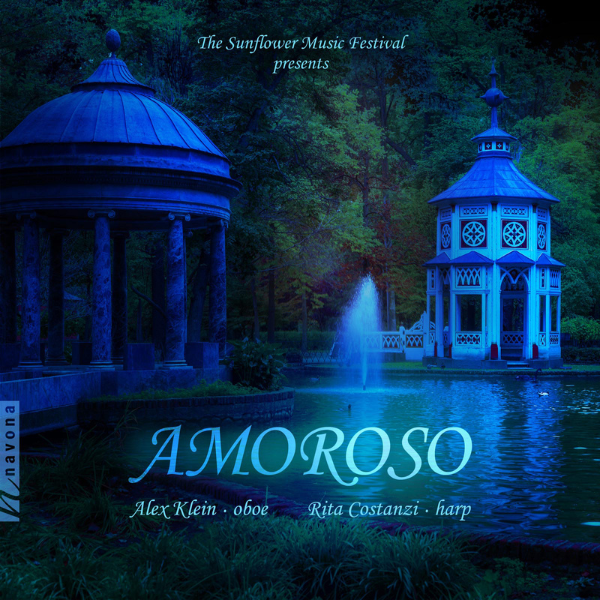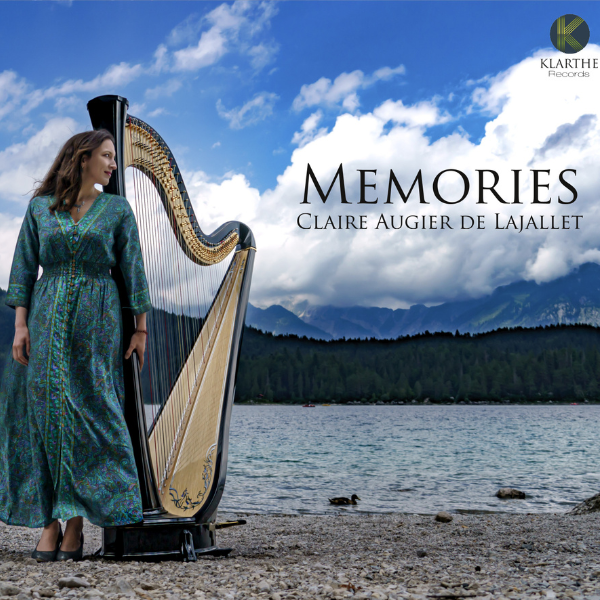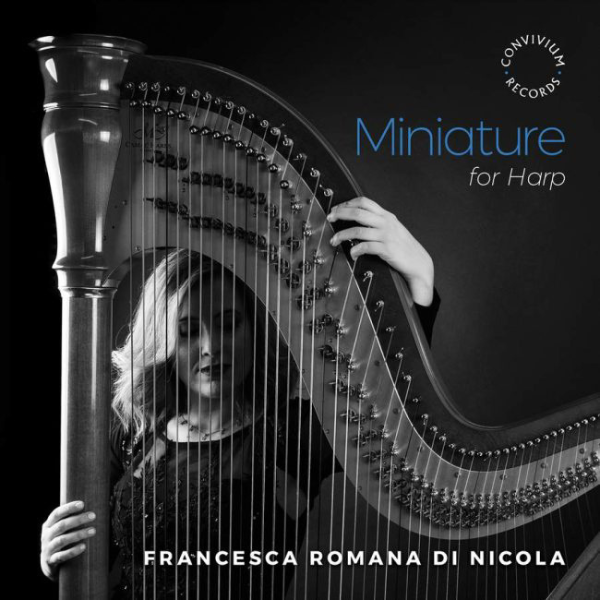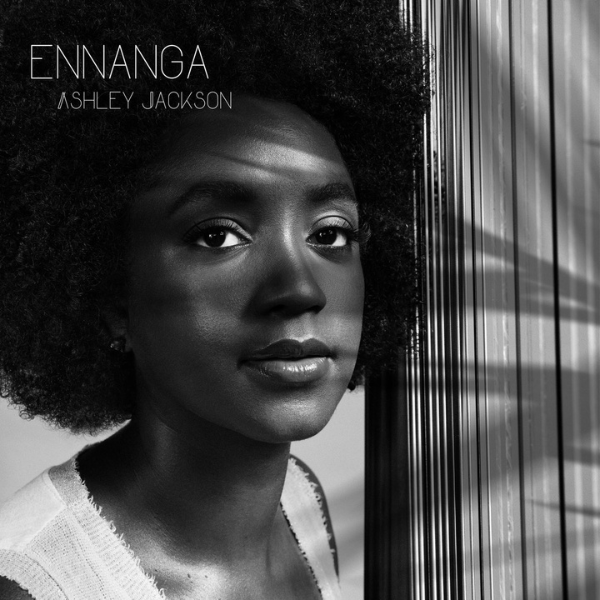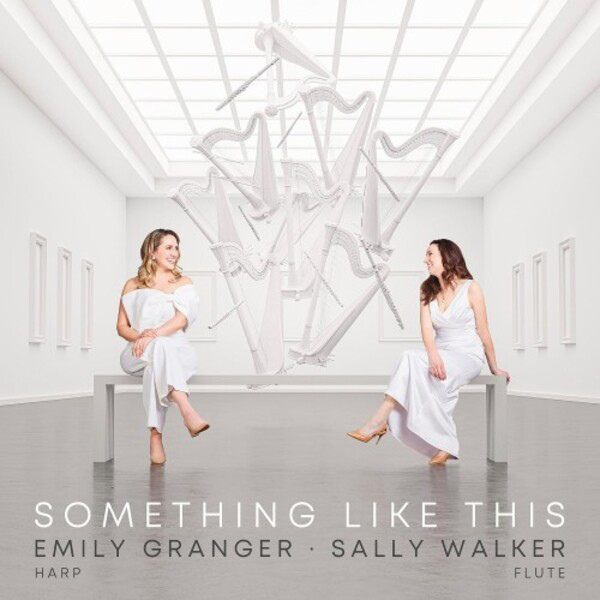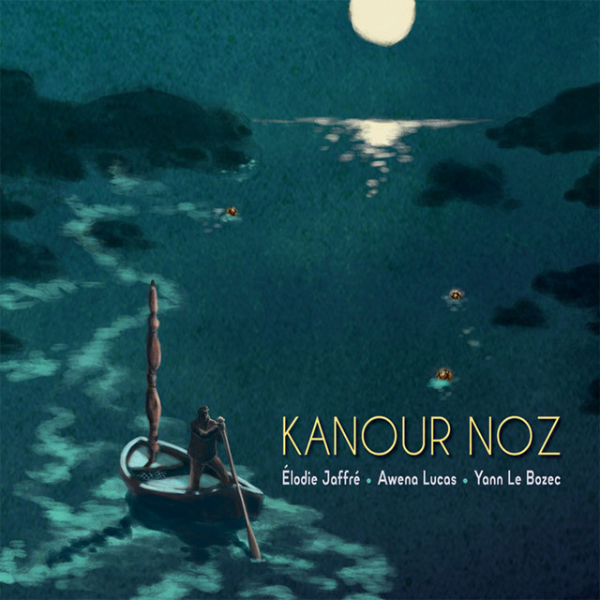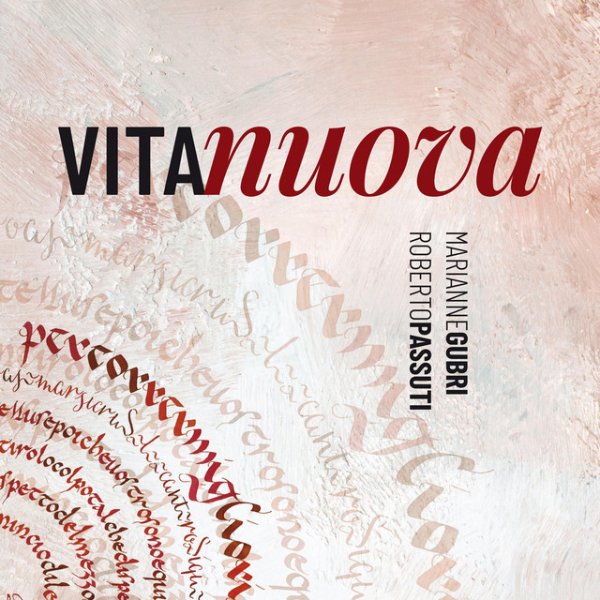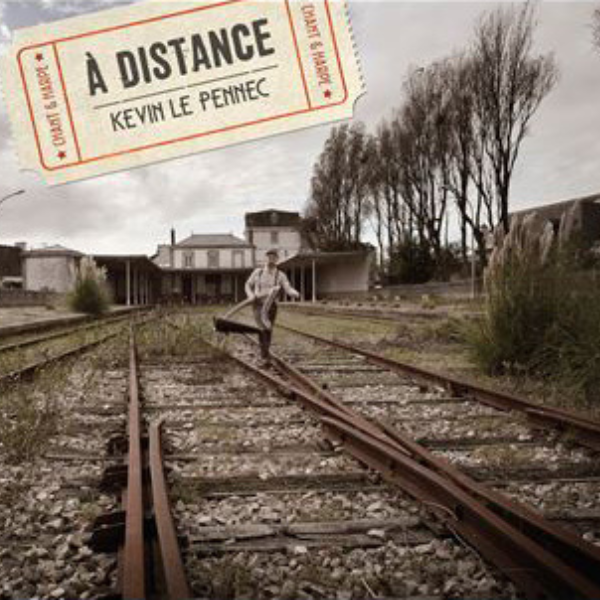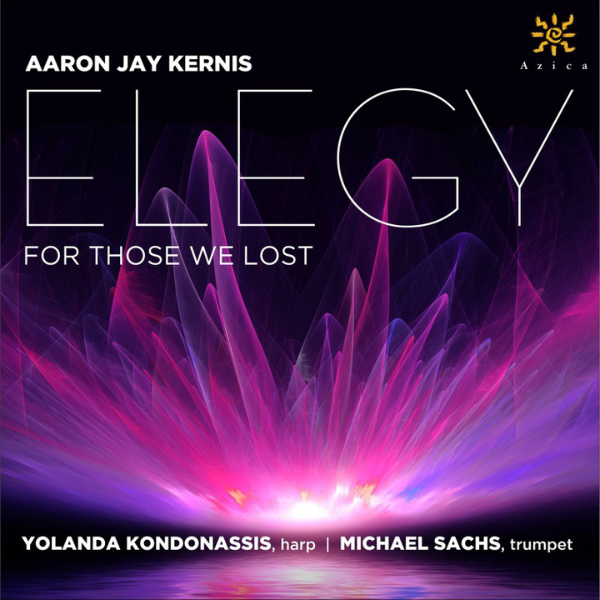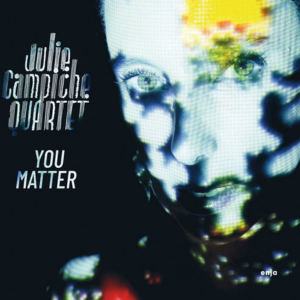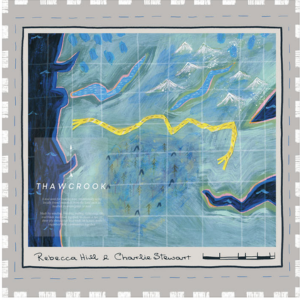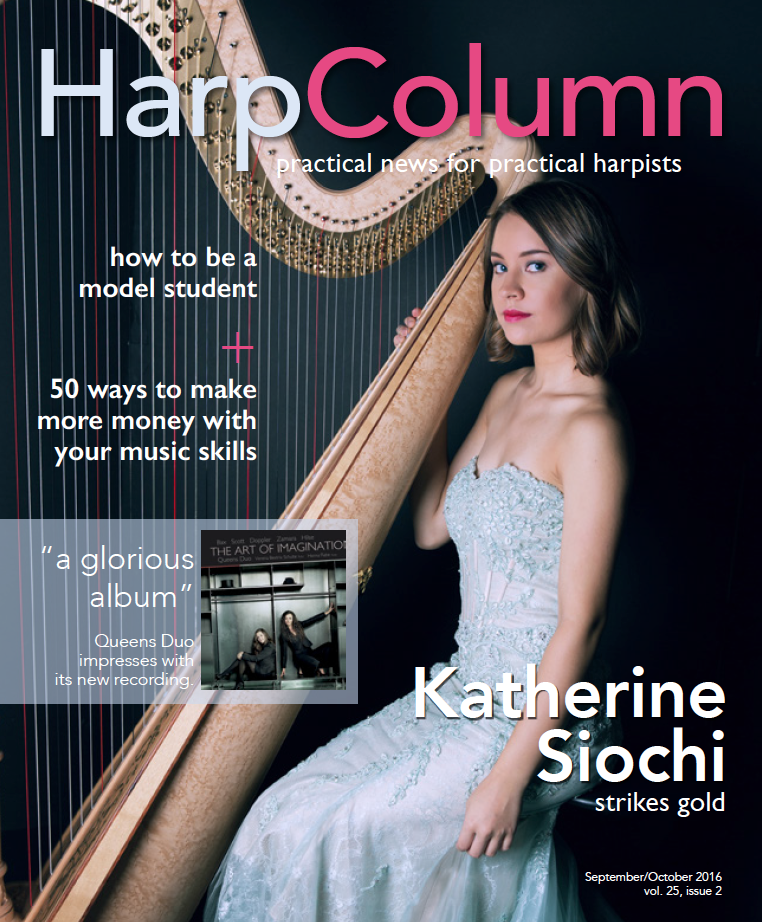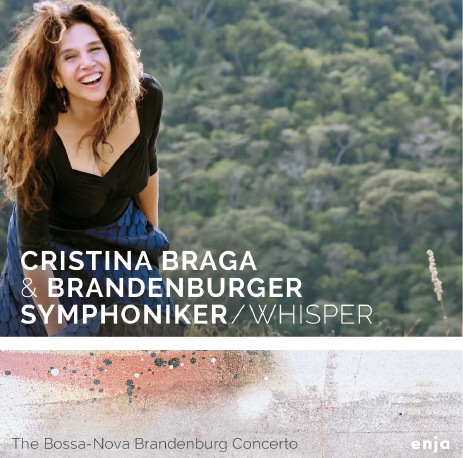
7/10
Cristina Braga, harp, and the Brandenburger Symphoniker; Biscoito Fino, 2016.
She has it all—the sultry voice, the look, great friends to make music with—and she ties everything up in a bow accompanying herself and providing the entire foundation with her harp. It’s Brazil’s national treasure, Cristina Braga, this time recording live in Germany’s Brandenburg Theatre with the house symphony orchestra, the Modern Samba Quartet, and singer/guitarist Dado Villa-Lobos (grandnephew of composer Heitor Villa-Lobos and former punk guitarist). And it’s all samba—and bossa nova—all the time on this richly orchestrated, sentimental, new recording Whisper.
The title track, with its moto perpetuo harp riffs, fills the air with a scent of Bach. The album earns credit as a “Bossa Nova Brandenburg Concerto.” Otherwise the choice of time and place and orchestra are of little consequence to the mood. That’s not to say their work is subpar. They play cleanly but are on the stage to help shine the spotlight on the real work going on by the quintet and Braga, who effortlessly adds her improvisations to the mix. But throughout I got the distinct feeling she needed less to express herself through harp and would prefer her voice to speak for herself.
A favorite track from this album is “Mot d’amour,” which will unhinge any tight hip muscles. If you can feel the heat and humidity getting thick, you’ll need to be well oiled to keep up with the percussive “A Ra,” where both Cristina’s incisive voice and immaculate, but laid back technique on the harp shine. Trumpeter Jesse Sadoc has just the right swagger in his smooth tone.
Portuguese has an almost built-in susurration that is hard to imitate in English, so it’s a puzzle why Braga sings “Last Words”—for which she wrote the lyrics—in English. There might be a double meaning in the album title as her voice whispers, it purrs, it is most effective at a certain level, nearly spoken. This song requires a harsher tone, and while accentuated in the brass off-beats, her voice doesn’t quite cut through. But we return in “All Mine” to the more natural, lullaby quality in her voice and the angelic spinning out of arpeggios in her harp accompaniment. However, as the concert progressed her voice became less assured on the pitch.
The music is a delight, the back-up band, the quartet—notably on vibes, Arthur Dutra—all providing an exceptional canvas. You might find yourself hooked, as I was, from the moment with the laid back bossa beat of Tom Jobim. If you want to hear how Brazilians are keeping this music alive and well, get this album.






